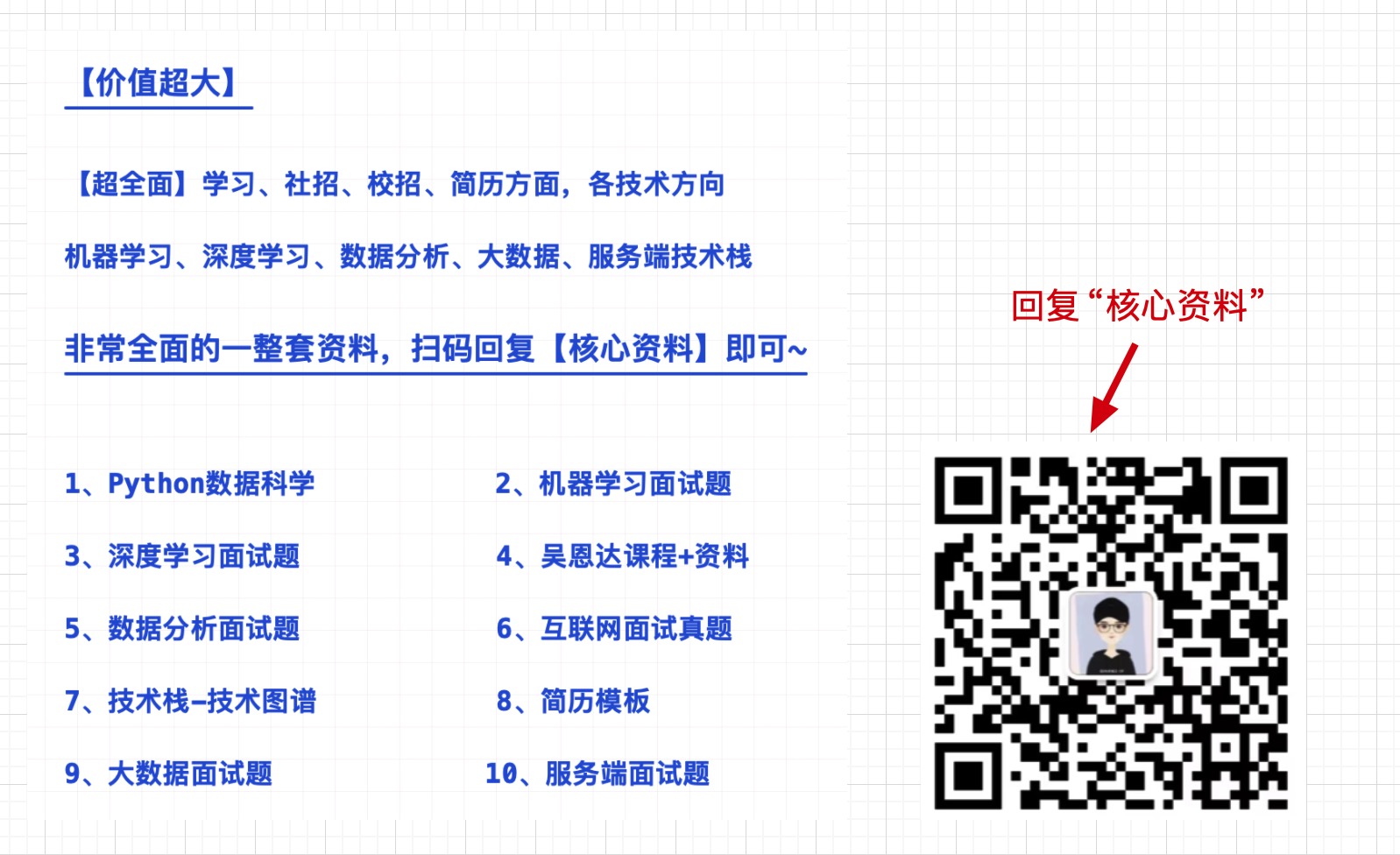说到 pytest,大家总不免要拿来和 unittest 来比一下,但是 unittest 毕竟是标准库,兼容性方面肯定没得说,但要论简洁和方便的话,pytest 也是不落下风的。
简单测试示例
def func(x):
return x + 1
def test_answer():
assert func(3) == 5
Testing started at 15:57 ...
Launching pytest with arguments test.py::test_answer --no-header --no-summary -q in D:\Projects\insight-tools-rest
============================= test session starts =============================
collecting ... collected 1 item
test.py::test_answer FAILED [100%]
test.py:4 (test_answer)
4 != 5
Expected :5
Actual :4
def test_answer():
> assert func(3) == 5
E assert 4 == 5
test.py:6: AssertionError
============================== 1 failed in 0.13s ==============================
Process finished with exit code 1
断言某类异常
import pytest
def f():
raise SystemExit(1)
def test_mytest():
with pytest.raises(SystemExit):
f()
[root@master ~]# pytest test.py
============================================================================= test session starts ==============================================================================
platform linux -- Python 3.6.8, pytest-6.2.5, py-1.11.0, pluggy-1.0.0
rootdir: /root
collected 1 item
test.py . [100%]
============================================================================== 1 passed in 0.01s ===============================================================================
[root@master ~]# pytest -q test.py
. [100%]
1 passed in 0.00s
将多个测试分组到类
class TestClass:
def test_one(self):
x = "this"
assert "h" in x
def test_two(self):
x = "hello"
assert hasattr(x, "check")
[root@master ~]# pytest -q test.py
.F [100%]
=================================================================================== FAILURES ===================================================================================
______________________________________________________________________________ TestClass.test_two ______________________________________________________________________________
self =
def test_two(self):
x = "hello"
> assert hasattr(x, "check")
E AssertionError: assert False
E + where False = hasattr('hello', 'check')
test.py:8: AssertionError
=========================================================================== short test summary info ============================================================================
FAILED test.py::TestClass::test_two - AssertionError: assert False
1 failed, 1 passed in 0.02s
在类中对测试分组时需要注意的是,每个测试都有一个唯一的类实例。让每个测试共享同一个类实例将非常不利于测试隔离(添加到类层级的属性会被所有 test 共享)。
class TestClassDemoInstance:
value = 0
def test_one(self):
self.value = 1
assert self.value == 1
def test_two(self):
assert self.value == 1
[root@master ~]# pytest -q test.py
.F [100%]
=================================================================================== FAILURES ===================================================================================
________________________________________________________________________ TestClassDemoInstance.test_two ________________________________________________________________________
self =
def test_two(self):
> assert self.value == 1
E assert 0 == 1
E + where 0 = .value
test.py:9: AssertionError
=========================================================================== short test summary info ============================================================================
FAILED test.py::TestClassDemoInstance::test_two - assert 0 == 1
1 failed, 1 passed in 0.02s
指定测试
pytest test.py
[root@master ~]# pytest -q test.py
.F [100%]
=================================================================================== FAILURES ===================================================================================
________________________________________________________________________ TestClassDemoInstance.test_two ________________________________________________________________________
self =
def test_two(self):
> assert self.value == 1
E assert 0 == 1
E + where 0 = .value
test.py:9: AssertionError
=========================================================================== short test summary info ============================================================================
FAILED test.py::TestClassDemoInstance::test_two - assert 0 == 1
1 failed, 1 passed in 0.02s
pytest test.py::TestClassDemoInstance::test_one
[root@master ~]# pytest -q test.py::TestClassDemoInstance::test_one
. [100%]
1 passed in 0.01s
pytest testing/
pytest -k "MyClass and not method"
[root@master ~]# pytest -q test.py -k 'one'
. [100%]
1 passed, 1 deselected in 0.01s
[root@master ~]# pytest -q test.py -k 'two'
F [100%]
=================================================================================== FAILURES ===================================================================================
________________________________________________________________________ TestClassDemoInstance.test_two ________________________________________________________________________
self =
def test_two(self):
> assert self.value == 1
E assert 0 == 1
E + where 0 = .value
test.py:9: AssertionError
=========================================================================== short test summary info ============================================================================
FAILED test.py::TestClassDemoInstance::test_two - assert 0 == 1
1 failed, 1 deselected in 0.02s
关于预期异常的断言
import pytest
def test_zero_division():
with pytest.raises(ZeroDivisionError):
1 / 0
root@master ~# pytest test.py
============================================================================= test session starts ==============================================================================
platform linux -- Python 3.6.8, pytest-6.2.5, py-1.11.0, pluggy-1.0.0
rootdir: /root
collected 1 item
test.py . [100%]
============================================================================== 1 passed in 0.02s ===============================================================================
通过 match 上下文管理器的关键字参数,用于测试正则表达式是否匹配异常的字符串表示形式(如果能正常匹配,则可以通过测试):
import pytest
def myfunc():
raise ValueError("Exception 123 raised")
def test_match():
#with pytest.raises(ValueError, match=r".* 123 .*"):
with pytest.raises(ValueError, match=r".* 124 .*"):
myfunc()
root@master ~# pytest -q test.py
F [100%]
=================================================================================== FAILURES ===================================================================================
__________________________________________________________________________________ test_match __________________________________________________________________________________
def test_match():
#with pytest.raises(ValueError, match=r".* 123 .*"):
with pytest.raises(ValueError, match=r".* 124 .*"):
> myfunc()
test.py:11:
_ _ _ _ _ _ _ _ _ _ _ _ _ _ _ _ _ _ _ _ _ _ _ _ _ _ _ _ _ _ _ _ _ _ _ _ _ _ _ _ _ _ _ _ _ _ _ _ _ _ _ _ _ _ _ _ _ _ _ _ _ _ _ _ _ _ _ _ _ _ _ _ _ _ _ _ _ _ _ _ _ _ _ _ _ _ _ _
def myfunc():
> raise ValueError("Exception 123 raised")
E ValueError: Exception 123 raised
test.py:5: ValueError
During handling of the above exception, another exception occurred:
def test_match():
#with pytest.raises(ValueError, match=r".* 123 .*"):
with pytest.raises(ValueError, match=r".* 124 .*"):
> myfunc()
E AssertionError: Regex pattern '.* 124 .*' does not match 'Exception 123 raised'.
test.py:11: AssertionError
=========================================================================== short test summary info ============================================================================
FAILED test.py::test_match - AssertionError: Regex pattern '.* 124 .*' does not match 'Exception 123 raised'.
1 failed in 0.02s
def test_set_comparison():
set1 = set("1308")
set2 = set("8035")
assert set1 == set2
root@master ~# pytest -q test.py
F [100%]
=================================================================================== FAILURES ===================================================================================
_____________________________________________________________________________ test_set_comparison ______________________________________________________________________________
def test_set_comparison():
set1 = set("1308")
set2 = set("8035")
> assert set1 == set2
E AssertionError: assert {'0', '1', '3', '8'} == {'0', '3', '5', '8'}
E Extra items in the left set:
E '1'
E Extra items in the right set:
E '5'
E Full diff:
E - {'3', '8', '0', '5'}
E + {'8', '3', '1', '0'}
test.py:4: AssertionError
=========================================================================== short test summary info ============================================================================
FAILED test.py::test_set_comparison - AssertionError: assert {'0', '1', '3', '8'} == {'0', '3', '5', '8'}
1 failed in 0.02s
使用 pytest.raises 断言给定的异常
import pytest
@pytest.mark.xfail(raises=IndexError)
def test_f():
a = [1, 2]
print(a[0])
root@master ~# pytest -q test.py
X [100%]
1 xpassed in 0.01s
import pytest
@pytest.mark.xfail(raises=IndexError)
def test_f():
a = [1, 2]
print(a[2])
root@master ~# pytest -q test.py
x [100%]
1 xfailed in 0.02s
也可以使用 pytest.warns 检查代码是否引发了特定的警告
固定装置 @pytest.fixture
fixture 是 pytest 的特色,这个我就不多说了。不过,要怎么理解这个 @pytest.fixture 装饰的函数呢?
正常来说,像下面的例子,如果函数 test_string 直接把输入 order 当成一个普通的参数的话,肯定是会报错的(毕竟,谁也不知道你这个 order 是什么东东)。但使用了 @pytest.fixture 装饰 order 以后,就完全不一样了,这时候,test_string 的输入参数 order 其实是可以看成函数 order 执行返回后的结果重新赋值给了 order 参数(这也很符合装饰器的特点)。因此,@pytest.fixture 装饰的测试函数的参数相当于是一个已定义函数执行后的结果。
import pytest
Arrange
@pytest.fixture
def first_entry():
return "a"
Arrange
@pytest.fixture
def order(first_entry):
return [first_entry]
def test_string(order):
# Act
order.append("b")
# Assert
assert order == ["a", "b"]
def first_entry():
return "a"
def order(first_entry):
return [first_entry]
def test_string(order):
# Act
order.append("b")
# Assert
assert order == ["a", "b"]
entry = first_entry()
the_list = order(first_entry=entry)
test_string(order=the_list)
固定装置有很多特点,比如装置和使用其他装置,也可以重复使用,测试函数和装置也可以请求一次安装多个装置。
固定装置也可以在同一测试期间多次执行,pytest不会为该测试再次执行它们(而是使用第一次执行后的缓存结果),比如下面的例子:
import pytest
Arrange
@pytest.fixture
def first_entry():
return "a"
Arrange
@pytest.fixture
def order():
return []
Act
@pytest.fixture
def append_first(order, first_entry):
return order.append(first_entry)
def test_string1(append_first, order, first_entry):
# Assert
assert order == [first_entry]
def test_string2(order, first_entry):
# Assert
assert order == []
test_string1 和 test_string2 哪个会通过测试呢?答案是:两个都会通过测试。
root@master ~# pytest -q test.py
.. [100%]
2 passed in 0.01s
但是为什么呢?因为对于 test_string1 而言,append_first 使用了固定装置 order 后, order 已经不再是空列表了,即使 test_string1 也有使用 order,但是这个 order 只是第一次 order 被执行后的结果的引用,而不会真正去执行一遍 order 固定装置。test_string2 的话就好理解一些了。
Original: https://blog.csdn.net/TomorrowAndTuture/article/details/122703706
Author: Looooking
Title: Python 的 pytest 测试框架
原创文章受到原创版权保护。转载请注明出处:https://www.johngo689.com/772522/
转载文章受原作者版权保护。转载请注明原作者出处!

